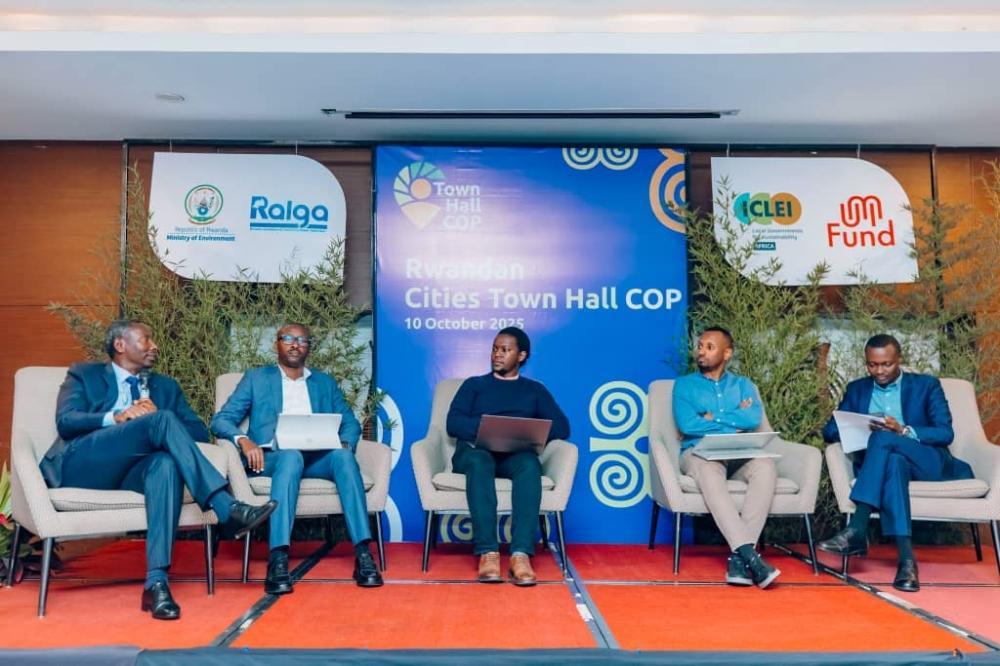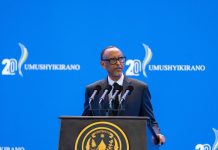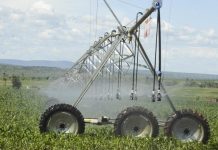Africa-Press – Rwanda. Rwanda has outlined six priorities for the 30th United Nations Conference on Climate Change, known as COP30, to be held in Belém, Brazil, from November 10 to 21, 2025.
The summit will bring together world leaders, scientists, non-governmental organisations, and civil society to discuss priority actions to tackle climate change.
COP30 will focus on the efforts needed to limit the global temperature increase to 1.5°C, the presentation of new national action plans known as Nationally Determined Contributions (NDCs) and progress on the finance pledges made at COP29.
An interactive dialogue led by the Rwanda Association of Local Government Authorities (RALGA), on October 10, brought together national and local actors to discuss Rwanda’s climate actions, their localisation at the community level, and the upcoming COP30.
The dialogues, known as Town Hall COPs, are community-led climate discussions that aim to bring global climate goals closer to home.
These local events serve as inclusive platforms where communities can review their climate progress, align with national climate objectives, and identify actions that reflect real community priorities such as health, justice, jobs, and nature.
By linking grassroots conversations to national climate plans (NDCs) and international processes like COP30, Town Hall COPs ensure that local voices play a meaningful role in shaping global climate action.
Thadée Twagirimana, Acting Director General for Environment and Climate Change at the Ministry of Environment, said that at COP30, Rwanda will focus on six priority areas.
1. Climate finance
“We will raise our voices to demand increased and accessible climate financing to support national and local projects,” he said.
The overall cost of implementing Rwanda’s NDCs, which are national climate action plans, since 2020 is estimated at $11 billion, with the current financing gap estimated at over $6 billion.
2. Adaptation and resilience
Twagirimana stated that Rwanda will call for support in implementing adaptation projects and building resilience at the community level.
“These efforts are critical to mitigate the impacts of climate change and ensure livelihoods are protected,” he noted.
3. Carbon markets
“We will push for stronger engagement in carbon markets. From our NDC2, Rwanda committed to reducing greenhouse gas emissions by 30 per cent by 2030. We must now leverage carbon credit mechanisms to support that target.”
Carbon markets are trading systems in which carbon credits, each representing one tonne of reduced or avoided emissions, are bought and sold to reduce air pollution.
Companies or individuals can use these markets to offset their greenhouse gas emissions by purchasing credits from entities or countries that reduce or remove emissions.
Countries like Rwanda are mobilising climate finance by attracting companies and nations interested in buying carbon credits to offset their own greenhouse gas emissions.
4. Loss and damage
He noted that Rwanda has seen an increase in extreme weather events over the past decade, including floods and landslides that have caused loss of life and economic damage.
According to a World Bank diagnostic, Rwanda faces average annual losses of about $145 million from disasters such as floods, landslides, and earthquakes, with losses potentially reaching $345 million in extreme years.
“We will highlight the need for support in addressing these growing impacts,” he said.
5. Mitigation
Under NDC3.0, the new version of Rwanda’s climate pledges to be launched at COP30, Rwanda has committed to a 53 percent emissions reduction by 2035, equivalent to 14.86 million tonnes of carbon dioxide equivalent.
“Achieving this target requires both domestic and international financial support,” he noted.
6. Just transition
“We must ensure a fair transition that addresses climate change impacts while promoting renewable energy, green jobs, and inclusive economic growth. Mobilising additional resources to fund these initiatives is essential,” he added.
Augustin Munyaneza, Director for Policy Analysis and Advocacy at RALGA, said:
“Rwanda’s ambitious goals of reaching a 70 percent urbanisation rate and achieving a carbon-neutral economy by 2050 reflect our firm commitment to addressing climate change and promoting sustainable development.”
He noted that challenges include limited access to climate finance and innovative green technologies, highlighting the need for further decentralisation of such instruments and capacity building.
For More News And Analysis About Rwanda Follow Africa-Press






